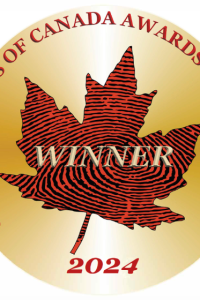Anand Vaidya (1976-2024)
Philosopher Anand Vaidya, 48, died October 11, 2024 of cancer. Vaidya cofounded the Science Fiction and Philosophy Society in 2022, “to explore connections between science fiction and philosophy, to cross-pollinate new ideas, and to boldly go where no one has thought before!”
Anand Jayprakash Vaidya was born January 4, 1976 in Chicago, Illinois. He grew up mostly in Saudi Arabia, but also spent time in India, Germany, and various parts of the US. He attended Humboldt State University before finishing his undergrad philosophy degree at UCLA in 1998. He earned his PhD at UC Santa Barbara, writing a dissertation on the epistemology of modality. He settled in the Bay Area in 2005, and taught philosophy at San José State University, earning tenure in 2010. He was Professor of Business Ethics and the Philosophy of Artificial Intelligence at San José, and Visiting Professor of Indian Philosophy of Mind and Knowledge at UCLA. He wrote extensively on Artificial Intelligence, among other topics, and co-founded the SFPS with his wife Manju Menon and Ethan Mills.
For more, see the appreciation from Menon below, and his website: anandvaidya.weebly.com.
ANAND
by Manjula Menon
I don’t want this to be about my crushing grief. This is about Anand, but also about the kind of things we discussed as we hiked through forests and mountains and beaches around the world, when he would often take a poorly articulated, rambling idea of mine, polish it, then serve it back to me in real time so I could see it for what it was trying to be.
But first, Anand. Anand was brilliant. He loved to cook. He was passionate about music. He was fierce in advocating for his friends and colleagues. “I like to be useful” was something he said to me often. I noticed afterwards that this was even part of his Airbnb bio. “I like guitar, yoga and to be useful,” he’d written. With people, he was talented at sifting out the noise and refining the signal. Appreciative of the inherent messiness of human existence, he was nonjudgmental almost to a fault, someone who sincerely wanted to connect with and make new connections on behalf of others. He made quick decisions and acted on them with alacrity. Time, he said to me, is so much more important than money. Money comes and goes, but time you can never get back.
He made connections not just between people but between ideas. His first love was modal epistemology, and the topic remained a passion throughout his life. He was a careful and precise writer, his technical arguments often aimed at logicians rather than at laypeople like me. He had a gift, a knack, a brilliance for doing philosophy on the page and in life.
I look back and see threads that I try to pull and weave meaning from. The evening Anand and I first met, we bonded over a discussion about the nature of time. Time is not comprised of matter in the ordinary sense, but we can measure it. When we refer to an event, we often specify it with the time it occurred and its duration. Causation, which allows for ordered, sequential events upon which all of physics is based, relies upon the notion of linear time. Most of us feel time is as real as everyday objects but also, we sense it is fundamentally different. My undergraduate degree is in astrophysics and so he talked to me about the theory of relativity. We talked about how strange it was to think that physical time, the thing we measure with mind-blowing precision and use to build the numerous machines that move, feed, entertain, heal or defend us, is a slippery kind of thing, and not the kind of slipperiness that Marcel Proust wrote about in his novel In Search of Lost Time either. Proust explored in his novels, our experience of time as something that blends with memory, and that stretches and shrinks through the day, writing quote, “An hour is not merely an hour, it is a vase full of scents and sounds and projects and climates, and what we call reality is a certain connection between these immediate sensations and the memories which envelop us simultaneously with them….” I offered that the Proustian experiential notion of time was a subjective quality, while the weirdness of physical time, was something altogether different because physical time was what biology uses to keep our bodies alive. As Shakespeare’s Hamlet put it, “There are more things in Heaven and Earth, Horatio, than are dreamt of in your philosophy.”
In fact, Anand often played Hamlet to my Horatio. “Don’t go for the obvious things,” he would say, and I’m paraphrasing again. “Don’t follow the most popular, the most obvious, the trendy. Look instead in the wrinkles and hollows and dimpled edges for the really interesting stuff.” He scoured the planet looking for interesting ideas and even more important to him, interesting people to work on them with. I was there through much of his travels. While he met with friends and colleagues at conferences or cafes in cities and towns around the world, I’d often head to local museums. Afterwards I’d try to interest him with what I’d learned about the events and people who’d shaped the cultural landscape of where we found ourselves, but we both knew he was far more interested in making real connections with real people, than in the plaques commemorating and explaining the works and words of the past. It wasn’t that he didn’t like what museums had to offer, he was just more interested in the people around him. “Be bold. Take risks. Engage the world,” he would say to me.
Anand and I also talked about consciousness, the “what-it-is-like-to-be-me” component of existence, and as was often the case when we talked philosophy, we talked physics as well. Consciousness is linked to time. Time is experienced, but consciousness is experience. Just as time is what allows for causal theory and therefore physics, consciousness is what makes our understanding of causal theory and therefore physics possible. Yet, while time is central to physics, consciousness remains on the periphery. Consciousness is like an inscrutable sphinx that suns itself on the fence that separates what modernity counts as knowledge from everything else. Or perhaps consciousness is not merely the sphinx on the fence but is the fence. Or maybe consciousness is the entirety of what is observed, or none of it, merely an illusion.
There is no standard theory of consciousness based on physics. No standard theory yet, the promissory note of science, I would often say to Anand when we discussed such matters, which I knew he thought was a cheap joker in the pack, one that could always be played if there are no other cards in hand. Anand focused on bringing ideas from Indian philosophy into conversation with mainstream analytical philosophy. Anand and I had both grown up in the Hindu tradition and we both claimed to be agnostic, but I found myself expressing my skepticism from the more intellectually safe perch of atheism. The thing about spiritual or religious belief, I told him, is that it comes down to Kierkegaard’s qualitative leap, or a leap of faith, that is to say, there cannot be a bridge built on rational arguments and evidence-based reasoning that one can walk across between on the one side non-belief, and on the other, belief. One must stop thinking and simply leap from one side to the other. But it had never been about religion for Anand, it had always been about ideas. One of the things that Anand had found attractive about classical Indian philosophy was the exploration of notions of consciousness and the self, not just in the periphery, but as central to any understanding of our reality.
In addition to consciousness and the self, there was another notion that classical Indian philosophers thought central to any understanding of reality: time. There is only one reality, claims Advaita Vedanta, one unchanging reality. A reality that is outside of time. A reality that I can barely imagine because time is so central to our understanding of the common-sense, physical world. It is the same inexplicability that arises when thinking about what reality was like before the theorized big bang. Did spacetime, and therefore time, not exist prior? I think of the theory of eternalism, based on the theory of relativity, that describes an eternal, unchanging block of spacetime, where every event past, present, and future already exists as points within it. To be clear, this is not the eternal reality as described by Indian philosophical traditions even if there appears to be superficial similarities. In the eternalist conception of reality, even as I speak now, Anand is being born in Illinois and being welcomed by his loving family. Even now he rides his dirt bike in Saudi Arabia. Now he is in high school in Los Angeles, now he walks through the redwoods of Humboldt, now he raises his hand to ask a question at UCLA, now he wakes up in his office at UCSB, now he is teaching a class at SJSU, now he is giving a talk in India, now he is at a conference in Europe, now writing in a library in New Zealand, now he plays guitar in San Francisco, all the while meeting and connecting with people for whom he would move mountains if he could.
I remember telling him soon after we met that I felt the world was a better place merely because I knew he was in it. Now that he is gone, I find myself trying to find meaning and solace in notions of time and consciousness. Perhaps, I think, even now he and I are talking about the strange and wondrous nature of time that night we first met. The night we talked about how the world is so much more mysterious than our common-sense view would have us believe. He was the pillar upon which I rested, my strong, brave, gentle, loving, and fiercely supportive husband. He was everything to me. I miss you so much, my love.
—Manjula Menon
Manjula Menon is a writer. Find her @ www.manjulamenon.com or manjulamenon.






An interesting eulogy for an eternal soul from a soul that is trying to understand the mystery of infinite. Life itself is a mystery and we find few pieces to solve this jigsaw puzzle and try to fit them to find shape/meaning. But alas! Time is the ruler.
My condolence to Manjula Menon. The wisdom and the knowledge that has enriched life always rescue us from vacuum of loneliness.
This is a lovely tribute to Anand, Manju. Thank you for writing it, and my thanks to Locus as well for publishing it. I was looking forward to many more wide-ranging conversations with him–he was so brilliant and so kind. I know his website is a treasure trove. I will be reading it more, and I recommend it to other SF writers as a remedy for despair: it puts the concerns of SF into a much larger context. I like your thoughts about theories of spacetime, and I think we must have discussed this last year when we got together in Paris, because it came to my mind too in the past couple weeks. As you say, it doesn’t alleviate grief, but it adds a larger perspective that is interesting and distracting. And Time heals, eventually. Again, thank you.
For those of you who would like to read more about Anand Vaidya and his philosophical perspectives on science fiction, his website is at anandvaidya.weebly.com.